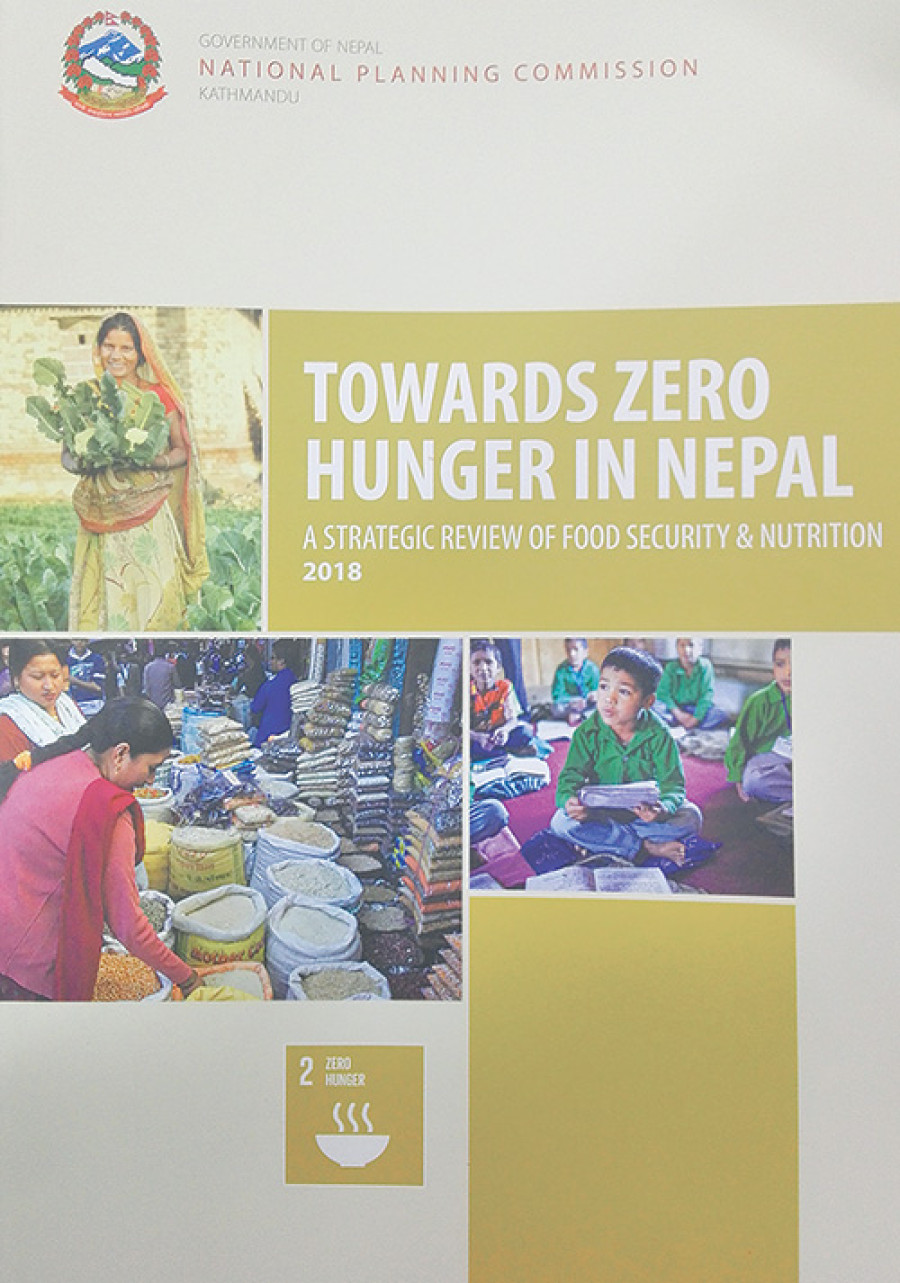Money
Report warns food insecurity is still looming over country
Nepal is still facing higher risk of food insecurity—one of the major challenges to meet the targets of the Sustainable Development Goals, the National Planning Commission has said
Nepal is still facing higher risk of food insecurity—one of the major challenges to meet the targets of the Sustainable Development Goals, the National Planning Commission has said.
In its report entitled ‘Towards Zero Hunger in Nepal: A Strategic Review of Food Security and Nutrition’, launched on Sunday, the commission has sought to scale up investment in the agriculture sector to meet the food and nutritional needs.
The National Planning Commission, the apex body that frames the country’s development plans and policies, said that Nepal was able to reduce the under nourishment to 8 percent from 21 percent during 2001-2016.
However, still around 36 percent of the people is deprived of proper food, leading to problems of underweight and various types of deficiencies.
A large chunk of people’s income is being spent just on managing food for the family’s need, the report says, pointing out that the average household spending on food still stands at 54 percent of their total income.
The constitution talks on the right to food for all the citizens and the government has enacted Right to Food and Food Sovereignty Act 2018. According to the commission, it has come up with an action plan in compliance to the Act, which talks about guaranteeing employment to the poor people by promoting the self-employment via skills based micro-enterprises.
The action plan has envisioned working in collaboration with the local government to identify households living below the poverty line, strengthening of market monitoring system to end cartel of food business, capacity building of the poor and encourage the private sector to produce improved and certified crops and livestock to ensure the food supply.
Similarly, the commission has also targeted at promoting the private sector to establish organic fertiliser plants, finalising the contract farming process and agribusiness promotion act and implementing the effective minimum support price schemes for essential commodities.
Dil Bahadur Gurung, a member of the commission, said there is still need for developing database management system in the agriculture sector. “There is a need for government policies to attract youth in agribusiness, promotion of commercial farming, developing value chain from production to market access and easy credit to farmers,” he said.
UN Resident Coordinator Valerie Julliand stressed the need for developing multi-dimensional and multi-sectorial approaches to address the food security in Nepal. “Eliminating hunger by proper implementation of policies should be among the top agendas of the government in its development efforts,” she added.




 9.7°C Kathmandu
9.7°C Kathmandu














